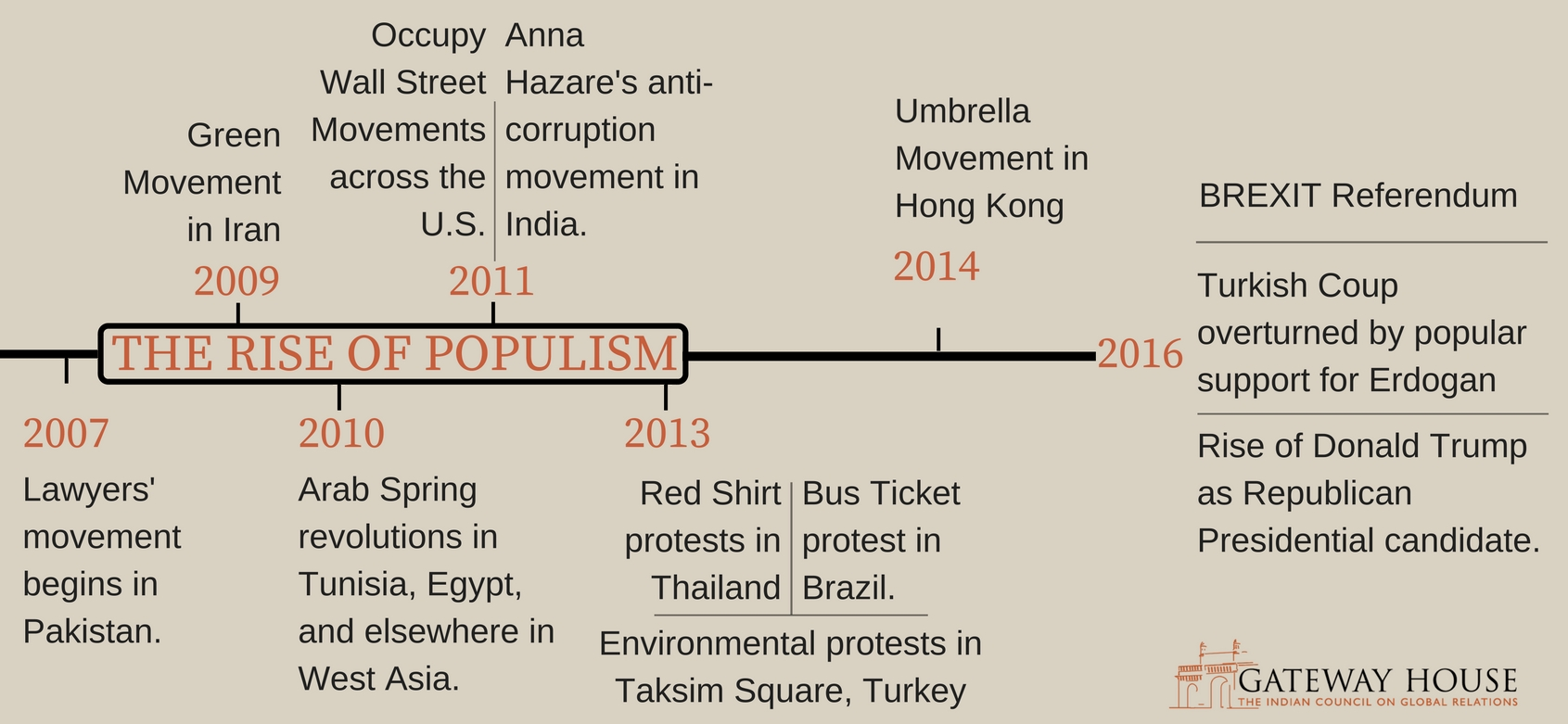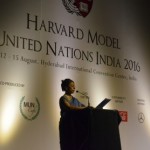Last night, at a dinner party, I was at the receiving end of a long argument – that of the virtues or lack of virtuosity of Donald Trump as U.S. president. The outrage at the table was Trump stating that Obama created ISIS.
Trump did say that, in a crude and unsophisticated way, not in Washington-speak or in a BBC accent. But the people who support Trump understood what he was trying to say. That Daesh stepped into a vacuum created by the actions of the U.S. President – entering a country, executing regime change, militarizing the zones, no political economic or security transitions and when popular opinion at home said ‘Get Out’ then the U.S. just left.
The country has a pattern of doing that over the decades – Korea, Vietnam, Iraq, Afghanistan, Libya, funding Syrian rebels, etc.
For this, the U.S. twisted the arm of the United Nations, and that of other countries. You all may remember the ‘Coalition of the willing’ for Iraq.
The U.S. is the largest funder of the UN. So if the largest shareholder of a global peace initiative subverts the mission, then how can that mission be effective? The U.S. has undermined its own credibility with these moves.
This is the position of the UN today, 70 years after it was created to establish world peace. It may appear that there are no major conventional wars taking place today, that we are more at peace. But peace is not just the absence of war. There are now various and deadly versions of war today, fought by non-state actors, not just for territorial purposes and not on the physical battle-field. There are economic wars, drug wars, cyber wars, with ever new technologies like high-speed algorithm trading in finance, new ways of absorbing dangerous drugs, and cyber technologies that can bring countries water and weapons and defence systems down.
It’s not just the UN that is dysfunctional. The entire generation of the Post World War Two international order is unravelling and is in flux.
- WTO is being undermined by bilateral, mega trade agreements and other such plurilateral arrangements
- The financial monopoly of the Bretton Woods institutions of 1945 like the World Bank and the IMF, the dominance of Wall Street, is now challenged by new non-western financial institutions created in the developing world like AIIB and the NDB by China and BRICS.
- NATO is being challenged by Shanghai Cooperation Council, and by its own inability to act beyond its Cold War compulsions, its continued demonization of Russia and inability to counter terrorism and the subsequent refugee crisis.
- The legitimacy of the Post WW2 Gulf monarchies has eroded, creating a dangerous disequilibrium in the region.
- No longer does Oil determine a country’s energy security’s calculation or its foreign policies. Shale, renewables have created new opportunities.
The rise of populism – or popular discontent – then, is inevitable. A series of protests red-flagged the dissatisfaction with the status quo.
It began in 2007 with The Laywer’s movement in Pakistan, and moved to the Green Movement in Iran in 2009, followed by the Arab Spring in Tunisia, Egypt and West Asia in 2010, The Anti-corruption movement in India in 2011 which coincided with the Occupy Wall Street – we are the 99% – in Zucotti Park in New York and across the U.S. in September 2011. It emerged again in 2013, with The Red shirt protests in Thailand, along with the environmental protest in Taksim Square in Turkey and Bus Ticket protest in Brazil in the same year. 2014 saw the notable Umbrella Protest in Hong Kong and in 2016 we’ve already seen the Brexit Referendum in June, a coup which was suppressed by the popular Erdogan support in July and now, it’s back to Donald Trump in the U.S., who has the support of a large chunk of the 99% that the 1% really never bothered with, during those early protests. He is the repository of the continued despair of ordinary Americans. He may sound crude, but so did Lalu Prasad Yadav when 25 years ago, he championed the cause of his OBC brothers in Bihar.
You may have a problem with their expression, but don’t underestimate the grevience behind them. Because there has been an inadequate response to the popular grievances both by the individual state and by international institutions. The political establishment everywhere has become so elite, it is disconnected from ordinary people. The Democratic and Republican Party in the U.S., the Congress Party in India, are examples.
The UN has still not been able to define terrorism nor evolve in a way that it can deal with the complications of contemporary global challenges. It is still held to ransom by powerful shareholders like the U.S., and therefore risks obsolescence.
Countries then, are responding with Jingoism, like Turkey, Russia, China, Thailand, Japan and most of Europe. Gulf monarchs are more isolated and brittle than ever before, and hiding behind an increasing militarization. The only country where there has been a successful transition of protest movement into political power is India, where the Anti-Corruption movement became the Aam Admi Party and contested elections in 2014, finally winning big in the state election of Delhi, with 67 of 69 seats. But this example is a rare one. Mostly, the old order is still holding on, refusing to change the status quo.
So the most critical challenge of the 21st century is this: to create a profound reconfiguring of how political and economic power is acquired and managed.
That, dear students is your job. You can lead a new era of
- Global security reform: starting with UN Security Council reform, the establishment of a strong SCO, and a focus on Human Security – strengthening peacekeeping operations with new models – like India did, by sending in an all-women’s medical peacekeeping force in the Congo in 2010
- Global Financial Reform: getting rid of the dominant Western benchmarks like LIBOR and BRENT which are loaded against the developing world, alternate banking systems that compete with SWIFT, new credit and debit cards like India’s RuPay and China’s AliPay which do more than just buy consumables.
- Global trade reform: Strengthen the WTO by taking more cases to it, and resisting mega trade agreements that don’t take into account the differences in standards etc in different countries, different agricultural markets and standards etc.
- Strengthening regional organizations: for the Rise of the Rest, the collective bargaining power from forming regional organizations is essential to achieve geopolitical balance. The EU is an example, and it will stay together, ASEAN is coming together slowly, and so we hope, will SAARC.
There are critical junctures in human history – and this moment is one of them. It is the opportunity for your generation to work collectively and with optimism to make the world a better place. I know you can. You can start by thinking about alternatives to everything you use and consume today, the most important being knowledge and news. Read your own country’s history well, your sociology and political science. Understand your nation’s needs from its own lens, rather than the lens of the West. You start by switching your news channel from CNN and BBC to Doordarshan and Rajya Sabha TV, which do a robust and non-controversial job of letting us know what is going on deep inside our land.
With this, I wish you all the best for the remaining two more days of exciting deliberation at this Model United Nations.
Manjeet Kripalani is Executive Director, Gateway House
This speech was delivered at Harvard Model United Nations India 2016.
You can read exclusive content from Gateway House: Indian Council on Global Relations, here.
For interview requests with the author, or for permission to republish, please contact outreach@gatewayhouse.in.
© Copyright 2016 Gateway House: Indian Council on Global Relations. All rights reserved. Any unauthorized copying or reproduction is strictly prohibited


